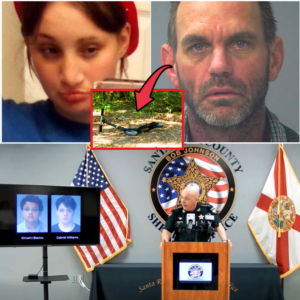In the annals of modern innovation, few names evoke as much awe, envy, and outright exasperation as Elon Musk. Born on a winter’s day in 1971 amid the sun-baked sprawl of Pretoria, South Africa, Musk entered a world far removed from the gleaming boardrooms and launchpads that would later define his existence. The son of a glamorous Canadian model and dietitian mother, Maye, and a brilliant but domineering South African engineer father, Errol, young Elon navigated a childhood laced with privilege, pain, and an insatiable hunger for the cosmos. Bullied relentlessly at school—once hospitalized after a savage beating that left him with a broken nose and shattered confidence—he retreated into towering stacks of science fiction novels. Isaac Asimov’s Foundation series, Robert Heinlein’s Stranger in a Strange Land, and Douglas Adams’ Hitchhiker’s Guide to the Galaxy weren’t mere escapes; they were blueprints for a universe Musk vowed to conquer. “I was raised by books,” he later reflected in a rare moment of vulnerability, crediting those pages with igniting a fire that apartheid-era South Africa could never extinguish.
By age 10, Musk had acquired his first Commodore VIC-20 computer, a clunky gateway to digital wizardry. Two years later, at 12, he channeled that obsession into Blastar, a rudimentary space shooter game coded in BASIC. Selling the code for $500 to a South African magazine—a princely sum for a kid in short pants—it was the first flicker of the entrepreneurial blaze that would one day scorch industries. But home life offered little solace. Errol Musk, an electromechanical engineer with stakes in Zambian emerald mines and a penchant for volatile tempers, loomed large. Elon has since branded his father “a terrible human being,” a man whose intellectual gifts masked emotional voids. When his parents divorced in 1979, the 8-year-old chose to live with Errol—a decision he later called his life’s greatest regret—enduring a household rife with tension and isolation. Maye, ever the resilient force, hustled as a model to support her three children: Elon, brother Kimbal (a future restaurateur and SpaceX collaborator), and sister Tosca (a filmmaker). It was this matriarchal grit that instilled in Elon a survivalist’s edge, teaching him that reinvention wasn’t optional; it was oxygen.
The pull of North America beckoned in 1988, when Musk, at 17, leveraged his mother’s Canadian roots to emigrate. Landing in Saskatchewan with $2,000 sewn into his socks, he bunked with relatives, flipping burgers and scrubbing boiler rooms to scrape by. “I wanted to be where the action was,” he said, eyes fixed on America’s tech frontier. Queen’s University in Ontario followed, a brief pit stop before transferring to the University of Pennsylvania in 1992. There, in the ivy-clad halls of Philadelphia, Musk double-majored in physics and economics, devouring quantum mechanics by day and debating free-market utopias by night. His thesis? A prescient model for energy crises, blending orbital mechanics with economic incentives—a teaser trailer for the Musk doctrine: solve humanity’s grandest puzzles through audacious capitalism. In 1995, PhD dreams at Stanford’s materials science program lasted all of two days. The dot-com boom roared; Musk bolted for Palo Alto, armed with nothing but a mattress in a shared office and a mantra: “Failure is an option here. If things are not failing, you are not innovating enough.”
Zip2 was Musk’s baptism by Silicon Valley fire. Co-founded with Kimbal in 1995 using $28,000 from their father’s emerald-tainted largesse, the online city guide software targeted newspapers hungry for digital relevance. The brothers coded around the clock, surviving on Hot Pockets and sheer audacity. Elon slept under his desk; Kimbal hawked the product door-to-door. By 1999, Compaq shelled out $307 million for Zip2, netting Musk $22 million at age 28. Flush with cash, he plunged it into X.com, an online banking upstart launched in 1999. Vision? A frictionless financial future, where money moved like light. Merger with Confinity birthed PayPal in 2000, but boardroom intrigue ousted Musk as CEO during a Hawaiian vacation. Undeterred, he fought back as chairman, guiding the eBay acquisition for $1.5 billion in 2002. His cut: $180 million. At 31, Musk was a dot-com deity, but complacency? Not in his lexicon. “I could have retired and sailed yachts,” he quipped. Instead, he bet it all on the stars.
SpaceX’s genesis in 2002 was Musk’s middle finger to aerospace aristocracy. Fresh from a humiliating haggling session in Moscow—where Russian rocket peddlers spat on his shoes over a $8,000 missile price—he vowed to democratize space. “If NASA could do it, why not a startup?” Pouring $100 million into Hawthorne hangars, Musk assembled a ragtag team of welders and wonks. The early years were apocalypse: three Falcon 1 launches imploded in 2006-2008, nearly bankrupting him. “I thought we were toast,” Musk confessed, staring at smoldering wreckage. PayPal proceeds dwindled; personal loans to employees became legend. But on September 28, 2008, Falcon 1 kissed orbit. NASA’s $1.6 billion contract followed, salvaging SpaceX from oblivion. Today, the company boasts reusable Falcon 9s landing like sci-fi drones, Starship prototypes eyeing Mars, and Starlink’s 6,000+ satellites blanketing Earth in broadband. Crew Dragon ferried astronauts to the ISS in 2020—the first private spacecraft to do so—while 2024 saw 144 launches, shattering records. Musk’s dream? A multi-planetary humanity, hedging against extinction. “Earth is fragile; we need backups,” he preaches, eyeing 1 million Mars colonists by 2050.
Parallel to cosmic gambles, Musk electrified roads with Tesla. Joining as an angel investor in 2004, he ousted founders and took CEO reins in 2008 amid near-collapse. The Roadster prototype debuted that year, a Lotus-chassis screamer proving EVs could thrill, not just tote. But revolution demanded scale. Model S (2012) seduced with falcon doors and blistering acceleration; Model 3 (2017) democratized luxury, churning 500,000 units annually. Gigafactories sprouted in Nevada, Shanghai, Berlin—behemoths humming with 4680 cells, churning batteries like digital Molochs. By 2025, Tesla’s fleet tops 6 million vehicles, Cybertruck’s angular dystopia ships 250,000 units despite rust-gate scandals, and Full Self-Driving beta tantalizes with robotaxi visions. Musk’s masterstroke? Vertical integration: from lithium mines to software updates over-the-air. Revenue hit $100 billion in 2024, but not without blood. “Production hell,” he called the 2018 Model 3 ramp-up, sleeping on factory floors amid whistleblower suits and SEC probes over “funding secured” tweets.
Musk’s empire sprawls beyond orbits and outlets. Neuralink (2016) threads electrodes into brains, aiming to merge man and machine—first human implant in 2024 restored quadriplegic Curtis to tweet via thought. The Boring Company (2016) drills Vegas loops to unclog urban veins, while xAI (2023) wages war on AGI perils with Grok, a cheeky chatbot rivaling ChatGPT. And X (formerly Twitter), acquired for $44 billion in 2022, embodies Musk’s free-speech absolutism: blue-check paywalls, staff slashed 80%, algorithms amplifying his barbs. Rebranded in 2023, it streams everything from memes to Mars feeds, though advertiser exodus and hate-speech spikes draw fire.
Yet, for every triumph, controversy trails like booster exhaust. Musk’s X missives—endorsing antisemitic tropes in 2023, deadnaming his transgender daughter Vivian in 2024, or dubbing COVID lockdowns “fascist” in 2020—paint him as troll-in-chief. SEC fines for market-moving tweets, NLRB clashes over union-busting at Tesla, and a 2018 Joe Rogan joint where he toked weed onstage fueled “erratic genius” narratives. Family fractures amplify the chaos: three marriages (to Justine Wilson, Talulah Riley—twice—and unspoken entanglements), 12 children including lost Nevada to SIDS and Vivian’s public disavowal. “I lost my son to the woke mind virus,” Musk lamented of her transition, a barb that widened their chasm. Philanthropy via the Musk Foundation lags critics’ calls—$5.7 billion pledged in 2021 Tesla stock barely trickled out—yet his $250 million Trump 2024 war chest and DOGE co-chair role in 2025 slash federal bloat with chainsaw zeal. Net worth? A volatile $500 billion as of October 2025, dwarfing Bezos and Zuckerberg combined.
At 54, Musk remains the ultimate rule-breaker, a Pretoria prodigy who alchemized risk into revolution. His 100-hour weeks, meme-lord persona, and “first principles” ethos—boil problems to physics, rebuild audaciously—have rewired industries, spawning EV booms, reusable rocketry, and neural frontiers. Detractors decry the human cost: burnout cultures, ethical elisions, a man whose ambition borders hubris. Admirers? They see salvation—a species-level hacker bending entropy toward infinity. As Starship’s flames light Boca Chica nights and Optimus bots toddle toward sentience, Musk’s legacy crystallizes: not flawless, but fearless. In a risk-averse world, he whispers, “The future is what we make it—why not make it multi-planetary?” From Blastar code to Mars ark, Elon Musk didn’t just play the game; he coded a new one, proving that one shy boy’s dreams can launch humanity beyond the stars.


